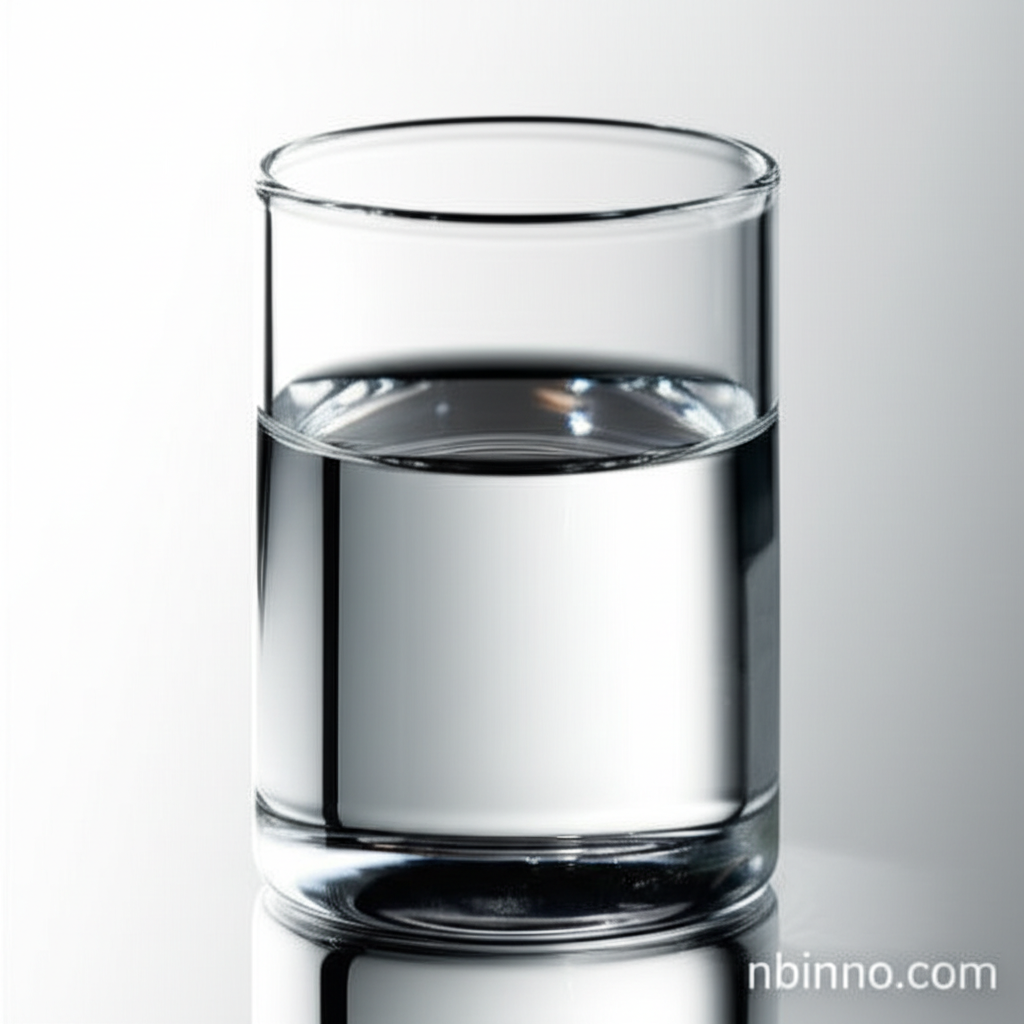Dibutyl Phthalate (DBP): Properties, Applications, and Safety Insights
Explore the multifaceted world of Dibutyl Phthalate, a key industrial chemical impacting flexibility and performance across industries.
Get a Quote & SampleProduct Core Value

Dibutyl Phthalate
Dibutyl Phthalate (DBP) is a highly versatile plasticizer and solvent, critically important for enhancing the flexibility, durability, and overall workability of a wide range of polymer materials. Its chemical structure and properties make it an indispensable component in numerous industrial applications, contributing significantly to product performance and longevity. As a sought-after chemical auxiliary, DBP is favored for its ability to impart desirable characteristics, making it a cornerstone in modern manufacturing processes that demand high-quality and reliable material properties.
- The Dibutyl Phthalate plasticizer applications are diverse, ranging from enhancing the pliability of PVC to improving the texture of textiles. DBP's primary role is to increase the flexibility and durability of polymers, solving issues like brittleness and ensuring products can withstand various environmental conditions.
- Understanding the DBP chemical properties and uses is crucial for formulators. DBP acts as an efficient plasticizer, improving the processing of materials like PVC and rubber, making them more pliable and resistant to cracking or hardening.
- Health risks of dibutyl phthalate are a significant consideration, with potential for developmental and reproductive toxicity. Regulatory bodies have placed restrictions on its use in certain products, especially those intended for children, due to these concerns.
- The DBP environmental impact is also under scrutiny, prompting research into safer alternatives. Its presence in various consumer products necessitates careful handling and informed consumer choices to mitigate potential exposure risks.
Advantages Offered by DBP
Enhanced Material Flexibility
DBP significantly improves the flexibility and workability of various materials, making it ideal for applications requiring durable, flexible components. This property is key to its wide adoption across different sectors.
Versatile Industrial Applications
Widely used in PVC, adhesives, coatings, and sealants, DBP meets diverse industrial needs. Its effectiveness as a plasticizer makes it essential for products requiring enhanced flexibility, softness, and stability.
Cost-Effective Solution
As a cost-effective solution for a wide range of industrial uses, Dibutyl Phthalate is a popular choice for large-scale manufacturing applications, balancing performance with economic viability.
Key Applications
Plastics Industry
DBP is a critical plasticizer for PVC, enhancing flexibility and durability in pipes, flooring, and medical devices, demonstrating its role in PVC plasticizer applications.
Adhesives and Sealants
Used in adhesives and sealants to improve bonding properties and flexibility, ensuring a strong and long-lasting hold, highlighting its utility in adhesives DBP uses.
Coatings and Paints
Functions as a solvent and viscosity controller in coatings and paints, improving flow and finish. This is a key aspect of its coatings DBP applications.
Cosmetics and Personal Care
Historically used in nail polish to prevent brittleness and as a solvent in fragrances, though regulatory changes have limited its use, making DBP in cosmetics and personal care a topic of safety discussions.
